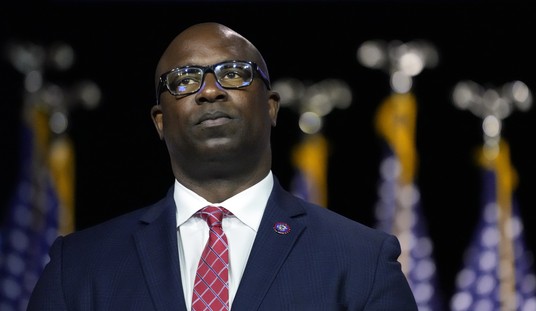Paige Patterson, former SBC president and current president of Southwestern Baptist Theological Seminary in Fort Worth, Texas, and Tom Nettles, professor of historical theology at Southern Baptist Theological Seminary in Louisville, Ky., presented papers arguing in favor of competing Baptist descent theories.
Bruce Ware, professor of theology at Southern Seminary, presided at the Nov. 18-20 ETS gathering; he is the first Southern faculty member ever to serve as the organization's president. Eugene Merrill, distinguished professor of Old Testament studies at Dallas Theological Seminary, is Ware's successor.
Baptist historians have proposed numerous theories regarding the question of Baptist origins, including:
-- Various "successionist theories," which assert that Baptist churches have continued in an unbroken line since the time of the apostles.
-- The "Anabaptist kinship" theory, which asserts that Baptists rose from Dutch and Swiss Anabaptists in the 16th century, groups that were born in reaction against such prominent reformers such as Martin Luther and John Calvin.
-- The "English Separatist Descent" theory, which argues that Baptists rose from English dissent (Puritanism) in the early 17th century. This theory, held today by a majority of historians, places the Baptist birth year at around 1609, prompting numerous conferences and papers this year marking the 400th anniversary of Baptist beginnings.
Recommended
Patterson, in his paper, "Genetics Versus Historiography: A Case for the Connection of Continental Anabaptism and Contemporary Baptists," argued in favor of Anabaptist kinship, asserting that Baptist churches in England and America share a heritage from Swiss Anabaptists who lived in England in the 17th century.
While acknowledging that the primary sources lean decidedly toward Baptist origins from English dissent, Patterson argued in favor of contemporary Baptists' spiritual kinship with Anabaptists on four doctrinal grounds.
"On the most critically important doctrines, Baptists were virtually indistinguishable from their Anabaptist cousins," Patterson said.
"These doctrines were: the absolute authority of the Bible and the necessity that the Scriptures be the sole authority for the development of authority and practice; the necessity of 'adult faith' for regeneration; the baptism of only the regenerate as a confession of faith; and a regenerate and disciplined church free from all other ecclesiastical authority in terms of belief and practice."
While all evangelicals in the Reformation claimed the principle of "sola Scriptura" -- Scripture as the sole authority of the church and the believer -- only the Baptists and Anabaptists followed the principle consistently by rejecting infant baptism, Patterson pointed out.
In viewing infant baptism as an unbiblical innovation, Baptists and Anabaptists also embraced "adult faith," Patterson said, or the belief that an individual must consciously and willfully trust in Christ for salvation, something babies lack the ability to do. This, in turn, led to defining the church as a community of baptized believers who gather voluntarily, free from governmental coercion. Anabaptists, he said, bequeathed these ideas to later Baptists, thus delivering to them their "Anabaptist DNA."
Nettles, in his paper, "The Particular Baptist Defense of Beginning Anew," argued that the modern-day Baptist pilgrimage may be properly traced to 1638 in England through the records of the "Jacob-Lathrop-Jessey (JLJ) Church," which tells of a Particular (or Calvinistic) minister named John Spilsbury, who recovered the practice of believer's baptism by immersion. Spilsbury argued that believer's baptism by immersion was a biblical practice and was one of the elements that constituted a true church even though the practice had not been in place in unbroken succession since the time of the apostles. The Bible gave Christians all the warrant they needed for recovery of the practice, Spilsbury asserted.
Spilsbury, Nettles said, defined a true church according to four elements: Faithful preaching of the Word; a clear confession of faith; voluntary participation together by covenant built upon the truths of Scripture as crystallized in the confession of faith; and a body composed of those who have been converted by the Spirit and properly baptized. These elements have formed a fundamental part of Baptist identity since, he said.
Nettles showed that John Smyth and fellow General (Arminian) Baptist Thomas Helwys helped to begin a movement toward the establishment of Baptist doctrine in the early 1600s, but that Baptist identity as it is known today came closer to full flower in Spilsbury. Thus, Baptist beginnings find their clearest expression in the Particular Baptists of England in the early-mid 17th century.
"Spilsbury's cogent arguments for a gathered, disciplined congregation of believers baptized by immersion as constituting the New Testament church gave expression to and built on insights that had emerged within separatism, advanced in the life of John Smyth and the suffering congregation of Thomas Helwys, and matured in Particular Baptists," Nettles said.
"The historical connections of both Helwys and Spilsbury defy any attempt to create an organic historic succession of Baptist churches.... Spilsbury's clear combination of authority, soteriology, confession and ecclesiology contributed immensely to the stability and confidence with which modern-day Baptists began their pilgrimage."
While they made a case for differing theories of Baptist origins, Patterson and Nettles agreed that the conclusions of successionist theories are largely unsupportable.
The format of the session was not a debate, so the papers were not presented as opposing cases for Baptist origins. Jason Lee, professor of historical theology at Southwestern, also presented a paper on the spiritual views of Smyth.
Copyright (c) 2009 Southern Baptist Convention, Baptist Press www.BPNews.net

























Join the conversation as a VIP Member